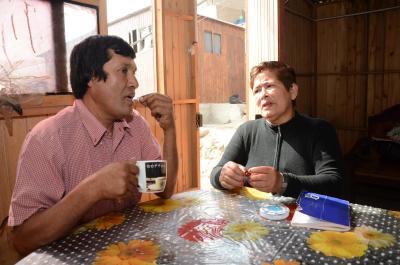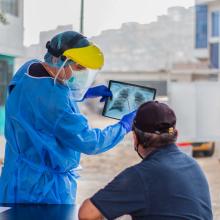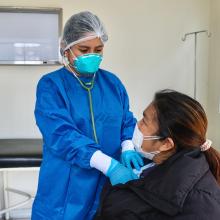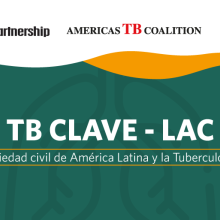The endTB-Q clinical trial, presented last November at The Union World Conference on Lung Health in Bali, Indonesia, has revealed encouraging preliminary results for the treatment of pre-XDR tuberculosis. According to Dr. Leonid Lecca, CEO of Partners In Health, this study demonstrates that “it is possible to reduce treatment to six months in patients with limited disease.”
The regimen tested combines the drugs bedaquiline, delamanid, linezolid and clofazimine (BCDL), achieving cure rates of 87%. In patients with non-severe cases, this figure rises to 93% when using a six-month schedule extended to nine months in case of late response. This represents a significant advance over traditional treatments.
Pre-XDR TB, which is resistant to drugs such as rifampicin and fluoroquinolones, has historically been treated with regimens lasting up to two years, which are toxic and ineffective. The endTB-Q trial, led by the endTB consortium, marks a shift toward shorter, less invasive and personalized strategies tailored to individual patient needs.
In the words of Dr. Carole Mitnick, co-principal investigator of the trial, “Treatment for tuberculosis cannot be uniform. This trial highlights that non-severe cases respond well to shorter regimens, but severe cases still face significant challenges.” This underscores the need for continued research into more effective and safer strategies.

En agosto de 2024, la Organización Mundial de la Salud recomendó tres nuevos regímenes para la tuberculosis multirresistente a fármacos o a la rifampicina (TB-MDR/RR) que fueron estudiados en el ensayo clínico endTB.
Foto de SES
Challenges in patients with severe disease
Despite success in non-severe cases, patients with severe disease did not achieve equivalent results with the nine-month regimen. According to Dr. Lecca, “in patients with more extensive disease, a longer duration of treatment will be required to prevent relapse.” This finding emphasizes the need for differentiated treatments according to severity.
The trial enrolled 323 participants from six countries, including Peru, which contributed 6% of the total. Although Peruvian participation was lower than that of India or Pakistan, the country remains key. “In Peru, the drugs proposed by the trial are already available, allowing us to implement this strategy in selected patients,” Lecca said.
The trial design included a personalized approach, adjusting treatment duration according to initial response and disease severity. This marks an important advance toward more tailored management of drug-resistant TB, prioritizing safety and effectiveness for patients.

El 13 de noviembre de este año se desarrolló en Bali (Indonesia) la Conferencia Mundial de La Unión sobre Salud Pulmonar, en la que participó Socios En Salud junto a otras organizaciones de todo el mundo.
Foto de The Union World Conference on Lung Helath
A promising future for resistant TB
The endTB-Q trial highlights the need for public policies that integrate these findings. “We want to continue research to find the shortest, best and safest scheme,” commented Dr. Lecca. Although six- to nine-month treatments are an advance, they are still considered long for many affected individuals.
The overall impact of the trial is significant, with a cure rate of 87%, comparable to 89% for long treatments, but with less toxicity. This demonstrates that personalized regimens can compete with conventional treatments and offer a more viable option for patients with pre-XDR-TB.
The joint work between Partners In Health, Médecins Sans Frontières and IRD ensures that these advances are relevant to diverse populations. According to Dr. Philippe Duneton, director of Unitaid, “This trial not only redefines the treatment of resistant TB, but reinforces the importance of patient-centered, community-led approaches.”
EndTB-Q represents a milestone in the fight against pre-XDR-TB, laying the groundwork for a future where treatment is more accessible, less toxic and personalized. While challenges remain, this trial offers hope for thousands of people facing this difficult-to-treat form of the disease.



